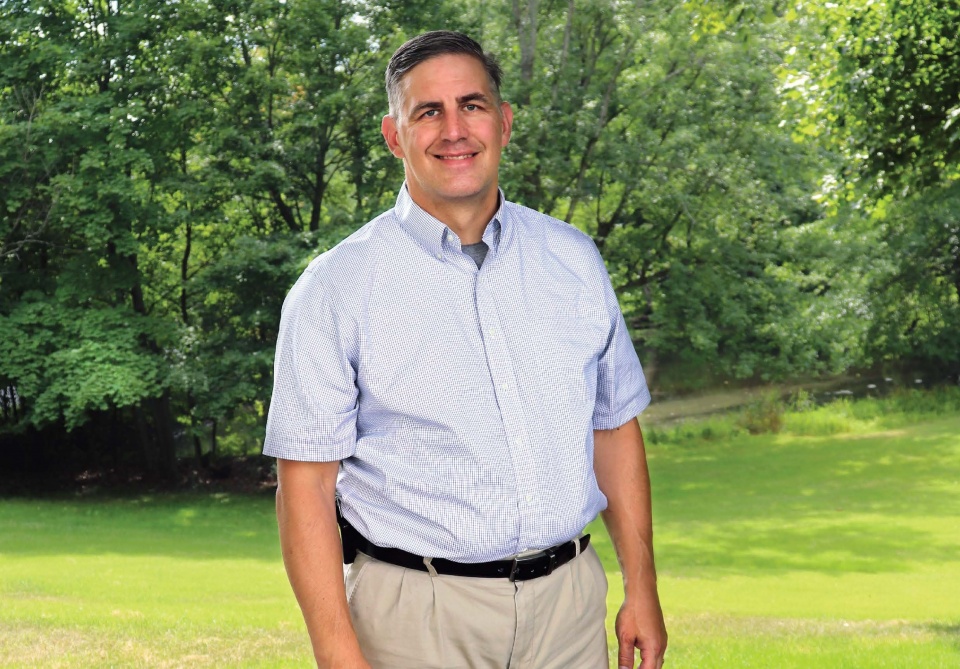Columbia College | Columbia University in the City of New York
Keeping New Yorkers Safe in a Crisis

LILLIAN HUTTON
In the early days of the outbreak, when much about the virus remained unknown, Hutton and his staff, who are based in Albany, put in long nights and weekends working on research and messaging. He notes that the Wadsworth Center, New York State’s world-renowned public health lab, developed its own antibody test and diagnostic tests early in the outbreak, while the Office of Public Health’s contact tracing initiative worked to identify and contain new clusters of COVID-19 across the state.
For Hutton, the response has been a testament to the importance of trusting in the scientific community. “We’re guided by science,” he says. “As each day and week elapsed and we learned new things about this virus — how it was transmitted and what we know about immunity — we continued to make policy decisions based on the science. And that’s how we always are, whether it was Zika or Ebola. It’s not new for us in public health to have an emerging pathogen; this one just happens to be affecting the entire world.”
Hutton notes that New York State poses unique public health challenges, as it is home to the densely populated New York City, extremely rural upstate communities and everything in between. “We can’t use a cookie-cutter approach,” he says. “We’re always having to fully understand the population impacted by a public health problem and develop an appropriate intervention or solution.” With that in mind, Hutton’s office is currently focusing on preventing the state from reverting to where it was in the early days of the pandemic, when New York City and Westchester County were the epicenter of the outbreak. His team is creating travel advisories and quarantine guidelines for people coming into New York from other states, and building contingency plans for school reopenings to ensure the risk of outbreaks is reduced. Hutton’s team is also preparing deployment plans to implement large-scale vaccinations as soon as a viable one becomes available.
Hutton acknowledges that “pandemic fatigue” is a major concern as the outbreak continues. “Mask use, good hand hygiene, staying home when you’re sick, social distancing — these are really simple things. When we see mass gatherings and parties, even in some parts of New York State, it is upsetting.”
Hutton had a passion for health from a young age, and was recruited by Columbia to play football as an offensive lineman. (He fondly recalls the team breaking its 44-game losing streak in his first year, and the student body carrying the goalposts down Broadway in celebration.) He was on the pre-med track, but when he didn’t get into medical school, he researched other options and fell in love with the field of public health. Hutton earned an M.P.H. from SUNY Albany in 1994, and started work at the New York State Office of Public Health. He initially worked in cancer control, investigating clusters of breast, cervical and colorectal cancers, then moved to researching infectious diseases. He has been in his role as deputy commissioner for four years. “One of the great things about the job is the variety,” he says. “I have not had a dull day.”
Before the COVID-19 outbreak, the Office of Public Health had several major wins under Hutton’s leadership. In June 2019, after a statewide measles outbreak was traced to clusters of non- vaccinated students, Gov. Andrew M. Cuomo signed a bill that ended religious exemptions for vaccines. Concerned about the effects of vaping and its target demographic of younger users, the Office of Public Health also pushed for a ban of flavored vaping products. Signed into law by Cuomo in April, the ban took effect on July 1. “New York State is incredibly progressive when it comes to public health,” Hutton says. “It’s a dream state to work in.”
Hutton notes that while his team prepares for vaccine deployment, Americans should focus on self-care and stress reduction, and adhere to safety recommendations like mask-wearing and social distancing. “There are local, state and federal health departments that prepare for this,” he says. “There’s a lot of expertise to rely upon — listen to and heed the advice of that expertise.”
[Editor's note: Hutton left his position at the Office of Public Health in late August 2020, shortly after we went to press.]
Issue Contents
Published three times a year by Columbia College for alumni, students, faculty, parents and friends.
Columbia Alumni Center
622 W. 113th St., MC 4530, 6th Fl.
New York, NY 10025
212-851-7852
cct@columbia.edu
Columbia Alumni Center
622 W. 113th St., MC 4530, 4th Fl.
New York, NY 10025
212-851-7488
ccalumni@columbia.edu

